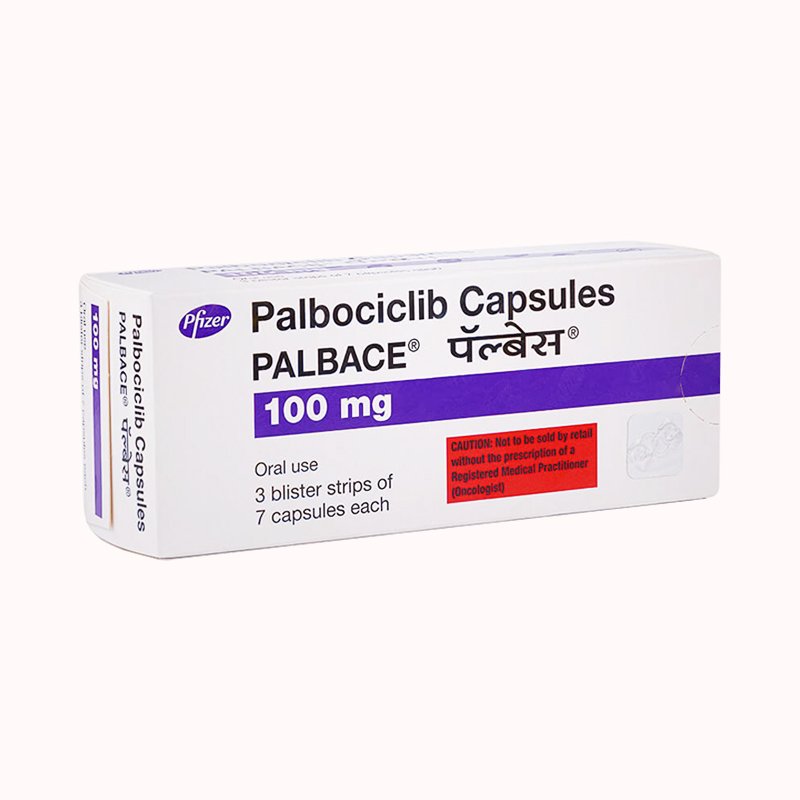Palbace 100mg is a prescription medication used to treat certain types of breast cancer, including hormone receptor-positive and human epidermal growth factor receptor 2 (HER2)-negative breast cancer. It is a cyclin-dependent kinase (CDK) inhibitor that works by blocking the activity of CDK4 and CDK6, which are key players in the growth and spread of cancer cells.
Composition:
- Palbociclib 100mg
Mechanism of Action:
Palbociclib works by:
- Inhibiting the activity of CDK4 and CDK6, which are key players in the growth and spread of cancer cells
- Blocking the signaling pathways that promote cancer cell growth and survival
- Reducing the production of proteins that contribute to cancer cell growth and survival
Indications:
Palbace 100mg is approved for the treatment of:
- Hormone receptor-positive and HER2-negative breast cancer in combination with letrozole or fulvestrant
- Hormone receptor-positive and HER2-negative breast cancer in combination with endocrine therapy
Dosage:
The recommended dosage of Palbace 100mg is:
- 100mg administered orally once daily for at least 21 days in a 28-day cycle
- The recommended duration of treatment is until disease progression or unacceptable toxicity occurs
Side Effects:
Common side effects of Palbace 100mg include:
- Fatigue
- Nausea and vomiting
- Diarrhea
- Abdominal pain
- Headache
- Dizziness
- Increased risk of infections
- Increased risk of bleeding
- Increased risk of neutropenia (low white blood cell count)
- Increased risk of thrombocytopenia (low platelet count)
Recommendation:
Palbace 100mg is recommended for patients with hormone receptor-positive and HER2-negative breast cancer who have not responded to other treatments or who have progressed on or are intolerant to other endocrine therapies.
Important Note:
- Patients taking Palbace 100mg should be closely monitored for signs of neutropenia or thrombocytopenia.
- Patients taking Palbace 100mg should avoid taking medications that may interact with it, such as warfarin or phenytoin.
- Pregnant or breastfeeding women should not use Palbace 100mg, as it may harm the fetus or infant.
- Regular follow-up appointments with your healthcare provider are necessary to monitor the effectiveness of Palbace 100mg and to detect any potential side effects or complications.
Special Precautions:
- Patients with a history of neutropenia or thrombocytopenia should be closely monitored while taking Palbace 100mg.
- Patients with a history of bleeding disorders should be closely monitored while taking Palbace 100mg.
Contraindications:
- Patients who are allergic to palbociclib or any other component of Palbace 100mg should not use it.
- Patients who are pregnant or breastfeeding should not use Palbace 100mg.
- Patients with severe neutropenia or thrombocytopenia should not use Palbace 100mg.
Warnings:
- Palbace 100mg can cause severe neutropenia or thrombocytopenia, especially in patients with a history of these conditions.
- Patients with a history of neutropenia or thrombocytopenia should be closely monitored while taking Palbace 100mg.
- Patients should report any changes in their blood cell count or symptoms of infection to their healthcare provider immediately.



Reviews
There are no reviews yet.